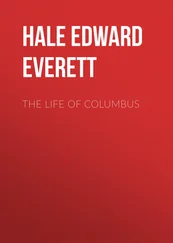Edward Hale - The Man Without a Country
Здесь есть возможность читать онлайн «Edward Hale - The Man Without a Country» — ознакомительный отрывок электронной книги совершенно бесплатно, а после прочтения отрывка купить полную версию. В некоторых случаях можно слушать аудио, скачать через торрент в формате fb2 и присутствует краткое содержание. Жанр: Альтернативная история, literature_19, foreign_antique, foreign_prose, Исторические приключения, на английском языке. Описание произведения, (предисловие) а так же отзывы посетителей доступны на портале библиотеки ЛибКат.
- Название:The Man Without a Country
- Автор:
- Жанр:
- Год:неизвестен
- ISBN:нет данных
- Рейтинг книги:4 / 5. Голосов: 1
-
Избранное:Добавить в избранное
- Отзывы:
-
Ваша оценка:
- 80
- 1
- 2
- 3
- 4
- 5
The Man Without a Country: краткое содержание, описание и аннотация
Предлагаем к чтению аннотацию, описание, краткое содержание или предисловие (зависит от того, что написал сам автор книги «The Man Without a Country»). Если вы не нашли необходимую информацию о книге — напишите в комментариях, мы постараемся отыскать её.
The Man Without a Country — читать онлайн ознакомительный отрывок
Ниже представлен текст книги, разбитый по страницам. Система сохранения места последней прочитанной страницы, позволяет с удобством читать онлайн бесплатно книгу «The Man Without a Country», без необходимости каждый раз заново искать на чём Вы остановились. Поставьте закладку, и сможете в любой момент перейти на страницу, на которой закончили чтение.
Интервал:
Закладка:
But in 1876 I was fortunate enough, on the kind invitation of Mr. Miner, to visit his family in their beautiful plantation at Terre Bonne. There I saw an old negro who was a boy when Master Phil Nolan left the old plantation on the Mississippi River for the last time. Master Phil Nolan had then married Miss Fanny Lintot, who was, I think, the aunt of my host. He permitted me to copy the miniature of the young adventurer.
I have since done my best to repair the error by which I gave Philip Nolan's name to another person, by telling the story of his fate in a book called "Philip Nolan's Friends." For the purpose of that book, I studied the history of Miranda's attempt against Spain, and of John Adams's preparations for a descent of the Mississippi River. The professional historians of the United States are very reticent in their treatment of these themes. At the time when John Adams had a little army at Cincinnati, ready to go down and take New Orleans, there were no Western correspondents to the Eastern Press.
Within a year after the publication of the "Man without a Country" in the "Atlantic" more than half a million copies of the story had been printed in America and in England. I had curious accounts from the army and navy, of the interest with which it was read by gentlemen on duty. One of our officers in the State of Mississippi lent the "Atlantic" to a lady in the Miner family. She ran into the parlor, crying out, "Here is a man who knows all about uncle Phil Nolan." An Ohio officer, who entered the city of Jackson, in Mississippi, with Grant, told me that he went at once to the State House. Matters were in a good deal of confusion there, and he picked up from the floor a paper containing the examination of Philip Nolan , at Walnut Springs, the old name of Vicksburg. This was before the real Philip's last expedition. The United States authorities, in the execution of the neutrality laws, had called him to account, and had made him show the evidence that he had the permission of the Governor of New Orleans for his expedition.
In 1876 I visited Louisiana and Texas, to obtain material for "Philip Nolan's Friends." I obtained there several autographs of the real Phil Nolan,—and the original Spanish record of one of the trials of the survivors of his party,—a trial which resulted in the cruel execution of Ephraim Blackburn, seven years after he was arrested. That whole transaction, wholly ignored by all historians of the United States known to me, is a sad blot on the American administration of the Spanish kings. Their excuse is the confusion of everything in Madrid between 1801 and 1807. The hatred of the Mexican authorities among our frontiersmen of the Southwest is largely due to the dishonor and cruelty of those transactions.
I 1 1 Frederic Ingham, the "I" of the narrative, is supposed to be a retired officer of the United States Navy.
suppose that very few casual readers of the "New York Herald" of August 13, 1863, observed, 2 2 " Few readers . . . observed ." In truth, no one observed it, because there was no such announcement there. The author has, however, met more than one person who assured him that they had seen this notice. So fallible is the human memory!
in an obscure corner, among the "Deaths," the announcement,—
"NOLAN. Died, on board U. S. Corvette 'Levant,' 3 3 The "Levant ." The " Levant " was a corvette in the American navy, which sailed on her last voyage, with despatches for an American officer in Central America, from the port of Honolulu in 1860. She has never been heard of since, but one of her spars drifted ashore on one of the Hawaiian islands. I took her name intentionally, knowing that she was lost. As it happened, when this story was published, only two American editors recollected that the "Levant" no longer existed. We learn from the last despatch of Captain Hunt that he intended to take a northern course heading eastward toward the coast of California rather than southward toward the Equator. At the instance of Mr. James D. Hague, who was on board the "Levant" to bid Captain Hunt good bye on the day when she sailed from Hilo, a search has been made in the summer of 1904 for any reef or islands in that undiscovered region upon which she may have been wrecked. But no satisfactory results have been obtained.
Lat. 2° 11' S.,
Long. 131° W., on the 11th of May, PHILIP NOLAN."
I happened to observe it, because I was stranded at the old Mission House in Mackinaw, waiting for a Lake Superior steamer which did not choose to come, and I was devouring to the very stubble all the current literature I could get hold of, even down to the deaths and marriages in the "Herald." My memory for names and people is good, and the reader will see, as he goes on, that I had reason enough to remember Philip Nolan. There are hundreds of readers who would have paused at that announcement, if the officer of the "Levant" who reported it had chosen to make it thus: "Died, May 11, THE MAN WITHOUT A COUNTRY." For it was as "The Man without a Country" that poor Philip Nolan had generally been known by the officers who had him in charge during some fifty years, as, indeed, by all the men who sailed under them. I dare say there is many a man who has taken wine with him once a fortnight, in a three years' cruise, who never knew that his name was "Nolan," or whether the poor wretch had any name at all.
There can now be no possible harm in telling this poor creature's story. Reason enough there has been till now, ever since Madison's 4 4 Madison . James Madison was President from March 4, 1809, to March 4, 1817. Personally he did not wish to make war with England, but the leaders of the younger men of the Democratic party—Mr. Clay, Mr. Calhoun, and others—pressed him against his will to declare war in 1812. The war was ended by the Treaty of Peace at Ghent in the year 1814. It is generally called "The Short War." There were many reasons for the war. The most exasperating was the impressment of American seamen to serve in the English navy. In the American State Department there were records of 6,257 such men, whose friends had protested to the American government. It is believed that more than twenty thousand Americans were held, at one time or another, in such service. For those who need to study this subject, I recommend Spears's "History of our Navy," in four volumes. It is dedicated "to those who would seek Peace and Pursue it."
administration went out in 1817, for very strict secrecy, the secrecy of honor itself, among the gentlemen of the navy who have had Nolan in successive charge. And certainly it speaks well for the esprit de corps of the profession, and the personal honor of its members, that to the press this man's story has been wholly unknown,—and, I think, to the country at large also. I have reason to think, from some investigations I made in the Naval Archives when I was attached to the Bureau of Construction, that every official report relating to him was burned when Ross burned the public buildings at Washington. One of the Tuckers, or possibly one of the Watsons, had Nolan in charge at the end of the war; and when, on returning from his cruise, he reported at Washington to one of the Crowninshields,—who was in the Navy Department when he came home,—he found that the Department ignored the whole business. Whether they really knew nothing about it, or whether it was a " Non mi ricordo ," determined on as a piece of policy, I do not know. But this I do know, that since 1817, and possibly before, no naval officer has mentioned Nolan in his report of a cruise.
But, as I say, there is no need for secrecy any longer. And now the poor creature is dead, it seems to me worth while to tell a little of his story, by way of showing young Americans of to-day what it is to be A MAN WITHOUT A COUNTRY.
Читать дальшеИнтервал:
Закладка:
Похожие книги на «The Man Without a Country»
Представляем Вашему вниманию похожие книги на «The Man Without a Country» списком для выбора. Мы отобрали схожую по названию и смыслу литературу в надежде предоставить читателям больше вариантов отыскать новые, интересные, ещё непрочитанные произведения.
Обсуждение, отзывы о книге «The Man Without a Country» и просто собственные мнения читателей. Оставьте ваши комментарии, напишите, что Вы думаете о произведении, его смысле или главных героях. Укажите что конкретно понравилось, а что нет, и почему Вы так считаете.












